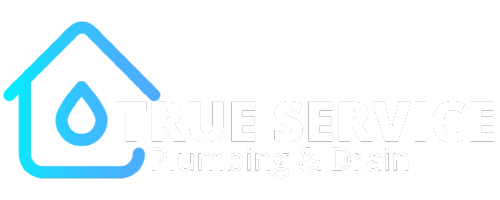Is your shower water pressure too high? While a strong shower might feel refreshing, excessive pressure can damage plumbing, increase water bills, and even create leaks.
Ignoring the issue can lead to costly repairs.
In this guide, we’ll walk you through the causes, risks, and solutions for managing high shower water pressure in your home.
Whether you’re a homeowner experiencing unexpectedly forceful water or simply curious about how pressure affects your plumbing, this article will give you the insights you need.
What Causes High Shower Water Pressure?
1. Municipal Water Supply Pressure
Your home’s water comes from the city supply, which often delivers water at higher-than-needed pressures.
Many municipal systems operate at 80 to 100 PSI (pounds per square inch), while residential plumbing is best at 40-60 PSI.
If your home lacks a pressure regulator, you may be dealing with more force than necessary.
2. Faulty or Missing Pressure Regulator
A pressure-reducing valve (PRV) is designed to regulate household water pressure.
If you don’t have one, or if your PRV is failing, pressure levels can spike.
A malfunctioning PRV may cause uneven pressure or sudden changes in water force.
3. Narrow or Clogged Pipes
Buildup from minerals, rust, or sediment can make pipes narrower, increasing water velocity.
While this doesn’t technically increase pressure from the source, it makes the water feel more forceful when it exits your fixtures.
4. Recent Plumbing Upgrades
If you’ve installed new pipes, a water heater, or fixtures, you may have altered your system’s flow dynamics.
Newer, more efficient plumbing components may handle water differently, inadvertently increasing shower pressure.
Why Is High Shower Water Pressure a Problem?
While high-pressure showers feel powerful, they can create serious issues:
- Plumbing Damage – Excessive force can wear out pipes, joints, and fixtures prematurely.
- Leaks and Drips – High pressure strains seals and washers, leading to leaks in your plumbing system.
- Increased Water Bills – Higher flow rates mean more water usage, driving up monthly costs.
- Uncomfortable Showers – Too much pressure can make your shower feel harsh rather than relaxing.
How to Test If Your Shower Water Pressure Is Too High
If you suspect your shower pressure is excessive, try these methods:
1. Use a Water Pressure Gauge
A pressure gauge, available at hardware stores, can be attached to a faucet to measure PSI.
If the reading is over 60 PSI, your water pressure may be too high.
2. Check for Water Hammer (Loud Noises)
Do you hear banging noises when turning water on or off?
This is called water hammer, and it often indicates pressure issues.
3. Observe Spray Patterns
If your shower head sprays water forcefully in all directions or feels uncomfortably strong, pressure might be the culprit.
How to Fix High Shower Water Pressure
1. Adjust the Main Water Pressure Regulator
If your home has a PRV, locate it (usually near the main water supply line) and adjust it.
Turning the adjustment screw counterclockwise reduces pressure. If you’re unsure how to do this, consult a plumber.
2. Install a Shower Pressure-Reducing Valve
An easy, cost-effective fix is to install a flow restrictor or pressure-reducing valve in your shower head.
These devices regulate output without affecting the rest of your plumbing.
3. Change to a Low-Flow Showerhead
Modern low-flow showerheads limit water output without compromising performance.
Look for models labeled WaterSense-certified to ensure optimal efficiency.
4. Check for Plumbing Issues
If your pressure is still high after adjustments, there may be clogged or corroded pipes contributing to the issue.
In older homes, replacing outdated pipes can help balance pressure.
5. Call a Professional Plumber
If DIY fixes don’t solve the issue, it may be time to consult an expert.
A plumber can diagnose the root cause and recommend tailored solutions.
When to Call a Professional for High Shower Pressure
You should contact a professional if:
- Your home’s water pressure exceeds 80 PSI consistently.
- You notice leaks, dripping fixtures, or sudden pressure fluctuations.
- Adjusting the pressure regulator or installing flow restrictors doesn’t resolve the issue.
Conclusion
Managing your shower’s water pressure isn’t just about comfort—it’s essential for maintaining your home’s plumbing health and efficiency.
If your shower water pressure is too high, taking steps like installing a pressure-reducing valve, adjusting the main water regulator, or calling a plumber can prevent long-term damage.
Shower Water Pressure Solutions with True Service Plumbing
If you’re dealing with excessive shower pressure in Toronto or the GTA, True Service Plumbing is here to help.
Our licensed professionals provide expert solutions to ensure your home’s plumbing operates smoothly.
Don’t let high water pressure create costly problems. Contact True Service Plumbing today for a consultation and reliable plumbing services!


